Daily Vocabulary Words: List of Daily Used Words in Leading International Newspapers
Hi there. Welcome to this special section @ Wordpandit.
Our endeavour here is very simple: to highlight important daily vocabulary words, which you would come across in leading newspapers in the country. We have included the following newspapers in our selection:
• The New York Times
• The Washington Post
• Scientific American
• BBC
• The Guardian
• Psychology Today
• Wall Street Journal
• The Economist
We are putting in extensive work for developing your vocabulary. All you have got to do is be regular with this section and check out this post on a daily basis. This is your repository of words that are commonly used and essentially, we are posting a list of daily used words. Hence, this has significant practical application as it teaches you words that are used commonly in leading publications mentioned above.
Visit the website daily to learn words from leading international newspapers.
WORD-1: Miniature
CONTEXT: What is it about the poem “Who killed Cock Robin?” It is so sad, and so coolly dark: a miniature drama played out in the shade of a single tree. The sparrow confesses right away, and nobody minds. The fly – “I, said the fly, with my little eye, I saw him die” – is a witness of whom no questions are asked. Everyone seems eager for the burial, eager to help, insincere in their mourning, “a-sighing and sobbing”.
SOURCE: The Guardian
EXPLANATORY PARAGRAPH: Miniature is something that is very small, like a tiny version of something bigger. Imagine a small toy car that looks just like a real car but is small enough to fit in your hand.
MEANING: Something small of its kind, often a small replica or model (noun); very small (adjective).
PRONUNCIATION: min-ee-uh-chur
SYNONYMS: Tiny, Small-scale, Diminutive, Compact, Little
USAGE EXAMPLES:
1. She collected miniature dolls.
2. The artist painted a miniature portrait.
3. They built a miniature model of the city.
4. He bought a miniature version of the famous sculpture.
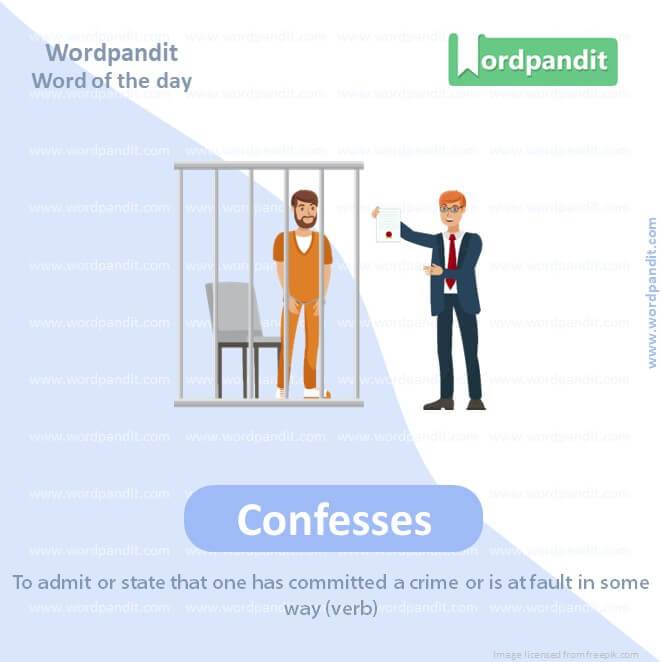
WORD-2: Confesses
CONTEXT: What is it about the poem “Who killed Cock Robin?” It is so sad, and so coolly dark: a miniature drama played out in the shade of a single tree. The sparrow confesses right away, and nobody minds. The fly – “I, said the fly, with my little eye, I saw him die” – is a witness of whom no questions are asked. Everyone seems eager for the burial, eager to help, insincere in their mourning, “a-sighing and sobbing”.
SOURCE: The Guardian
EXPLANATORY PARAGRAPH: Confesses means telling the truth about something, usually something that was kept secret or was wrong. It’s like admitting you took the last cookie when someone asks.
MEANING: To admit or state that one has committed a crime or is at fault in some way (verb).
PRONUNCIATION: kuhn-fes-es
SYNONYMS: Admits, Acknowledges, Reveals, Discloses, Declares
USAGE EXAMPLES:
1. She confesses her mistake to her teacher.
2. He confesses that he was nervous during the speech.
3. The criminal confesses to the crime.
4. They confess their love for each other.
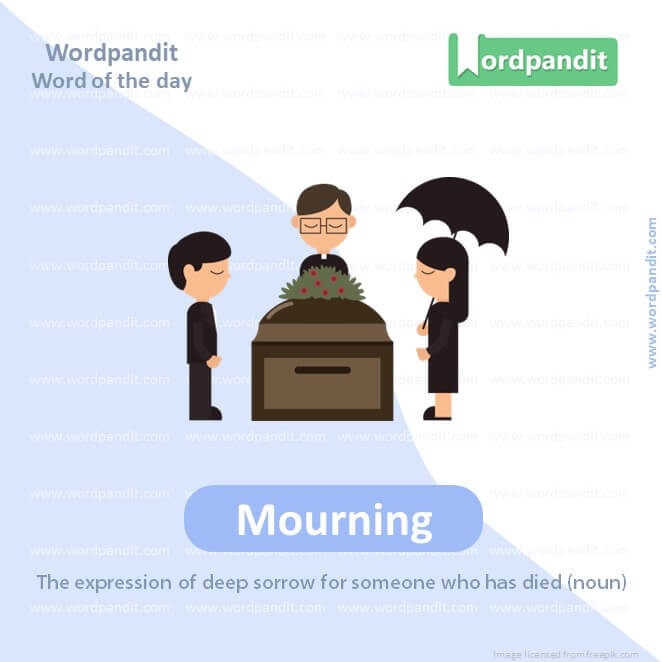
WORD-3: Mourning
CONTEXT: What is it about the poem “Who killed Cock Robin?” It is so sad, and so coolly dark: a miniature drama played out in the shade of a single tree. The sparrow confesses right away, and nobody minds. The fly – “I, said the fly, with my little eye, I saw him die” – is a witness of whom no questions are asked. Everyone seems eager for the burial, eager to help, insincere in their mourning, “a-sighing and sobbing”.
SOURCE: The Guardian
EXPLANATORY PARAGRAPH: Mourning is feeling very sad because someone has died. It’s like when you miss someone a lot because they are not here anymore.
MEANING: The expression of deep sorrow for someone who has died (noun).
PRONUNCIATION: mor-ning
SYNONYMS: Grieving, Bereavement, Sorrow, Lamentation, Sadness
USAGE EXAMPLES:
1. The family was in mourning after their grandfather passed away.
2. She wore black as a sign of mourning.
3. There was a period of national mourning for the leader.
4. Mourning doves are named for their sad call.
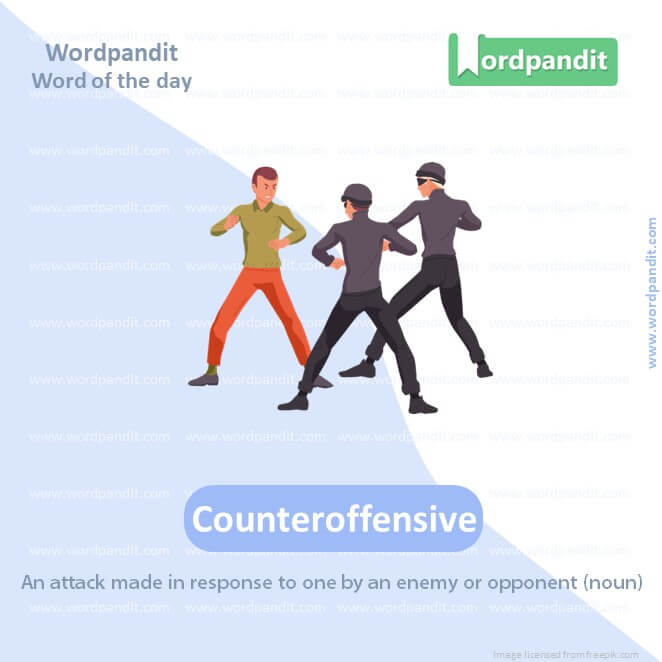
WORD-4: Counteroffensive
CONTEXT: The Ukrainian counteroffensive has stalled. For the first time since the outbreak of the war, the feeling that Russia may actually be winning is taking root. The long-applauded western resolve in support of Ukraine is waning. The western Balkans are broiling. And next year’s presidential election in the US does not bode well for Europe. In this context, the timing of the summit of EU leaders on 14-15 December could make it the most consequential in the bloc’s recent history.
SOURCE: The Guardian
EXPLANATORY PARAGRAPH: Counteroffensive is like a comeback in a game or a battle. When one team or group attacks, the other group attacks back to defend themselves or to win.
MEANING: An attack made in response to one by an enemy or opponent (noun).
PRONUNCIATION: koun-ter-uh-fen-siv
SYNONYMS: Counterattack, Retaliation, Comeback, Reprisal, Response
USAGE EXAMPLES:
1. The army launched a counteroffensive to regain lost ground.
2. The team’s counteroffensive surprised their opponents.
3. The general planned a counteroffensive strategy.
4. Their counteroffensive quickly turned the tide of the battle.
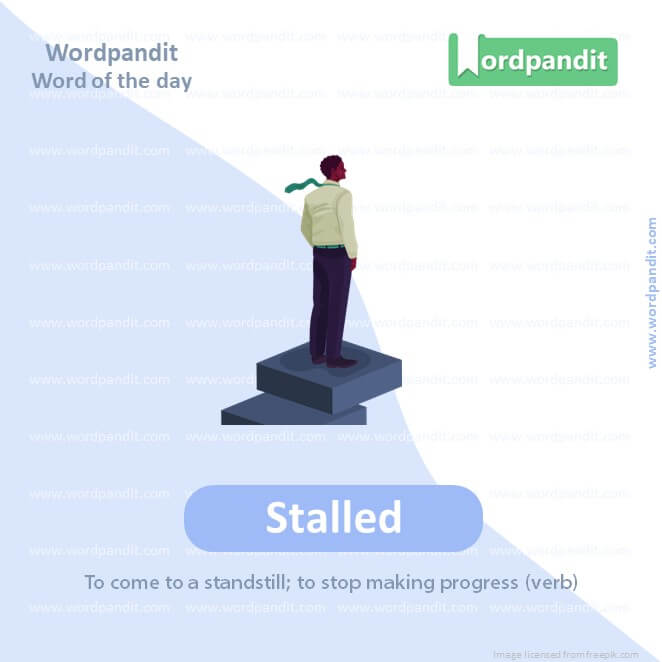
WORD-5: Stalled
CONTEXT: The Ukrainian counteroffensive has stalled. For the first time since the outbreak of the war, the feeling that Russia may actually be winning is taking root. The long-applauded western resolve in support of Ukraine is waning. The western Balkans are broiling. And next year’s presidential election in the US does not bode well for Europe. In this context, the timing of the summit of EU leaders on 14-15 December could make it the most consequential in the bloc’s recent history.
SOURCE: The Guardian
EXPLANATORY PARAGRAPH: Stalled means something has stopped moving or making progress. It’s like when your toy car stops because the battery runs out.
MEANING: To come to a standstill; to stop making progress (verb).
PRONUNCIATION: stawld
SYNONYMS: Halted, Stopped, Paused, Frozen, Interrupted
USAGE EXAMPLES:
1. The car stalled in the middle of the road.
2. The negotiations stalled due to disagreements.
3. His project stalled because he ran out of materials.
4. The computer program stalled and wouldn’t open.
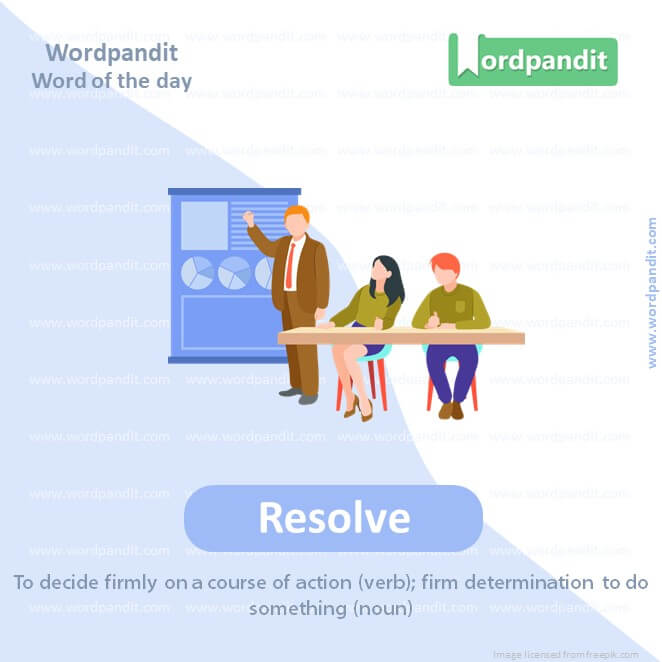
WORD-6: Resolve
CONTEXT: The Ukrainian counteroffensive has stalled. For the first time since the outbreak of the war, the feeling that Russia may actually be winning is taking root. The long-applauded western resolve in support of Ukraine is waning. The western Balkans are broiling. And next year’s presidential election in the US does not bode well for Europe. In this context, the timing of the summit of EU leaders on 14-15 December could make it the most consequential in the bloc’s recent history.
SOURCE: The Guardian
EXPLANATORY PARAGRAPH: Resolve is like making a very strong decision or promise to yourself. It’s like deciding you will clean your room every day and really sticking to it.
MEANING: To decide firmly on a course of action (verb); firm determination to do something (noun).
PRONUNCIATION: re-zolv
SYNONYMS: Determination, Decision, Commitment, Resolve (noun), Settle (verb)
USAGE EXAMPLES:
1. She showed great resolve in learning to ride a bike.
2. They resolve to complete their homework on time.
3. His resolve was tested during the competition.
4. The committee will resolve the issue tomorrow.
WORD-7: Waning
CONTEXT: The Ukrainian counteroffensive has stalled. For the first time since the outbreak of the war, the feeling that Russia may actually be winning is taking root. The long-applauded western resolve in support of Ukraine is waning. The western Balkans are broiling. And next year’s presidential election in the US does not bode well for Europe. In this context, the timing of the summit of EU leaders on 14-15 December could make it the most consequential in the bloc’s recent history.
SOURCE: The Guardian
EXPLANATORY PARAGRAPH: Waning is like something getting smaller or less. Imagine the moon; sometimes it looks like it’s getting smaller each night. That’s waning.
MEANING: To decrease in size, extent, or degree (verb).
PRONUNCIATION: way-ning
SYNONYMS: Diminishing, Decreasing, Lessening, Fading, Ebbing
USAGE EXAMPLES:
1. The waning moon appeared in the night sky.
2. His interest in the game was waning.
3. The summer days were waning, and fall was approaching.
4. The storm’s strength was waning as it moved inland.
WORD-8: Broiling
CONTEXT: The Ukrainian counteroffensive has stalled. For the first time since the outbreak of the war, the feeling that Russia may actually be winning is taking root. The long-applauded western resolve in support of Ukraine is waning. The western Balkans are broiling. And next year’s presidential election in the US does not bode well for Europe. In this context, the timing of the summit of EU leaders on 14-15 December could make it the most consequential in the bloc’s recent history.
SOURCE: The Guardian
EXPLANATORY PARAGRAPH: Broiling is cooking food with high heat, like when you cook something under the grill in the oven, and it gets a crispy top.
MEANING: To cook by direct exposure to high heat (verb).
PRONUNCIATION: broy-ling
SYNONYMS: Grilling, Roasting, Toasting, Searing, Barbecuing
USAGE EXAMPLES:
1. She was broiling chicken for dinner.
2. The recipe called for broiling the vegetables.
3. They enjoyed broiling marshmallows over the fire.
4. Broiling gives the meat a nice crust.
WORD-9: Bode
CONTEXT: The Ukrainian counteroffensive has stalled. For the first time since the outbreak of the war, the feeling that Russia may actually be winning is taking root. The long-applauded western resolve in support of Ukraine is waning. The western Balkans are broiling. And next year’s presidential election in the US does not bode well for Europe. In this context, the timing of the summit of EU leaders on 14-15 December could make it the most consequential in the bloc’s recent history.
SOURCE: The Guardian
EXPLANATORY PARAGRAPH: Bode is like predicting or giving a hint about what will happen in the future. It’s like saying if the sky is very dark, it probably means it will rain.
MEANING: To be a sign of a future event or situation, usually a bad one (verb).
PRONUNCIATION: bohd
SYNONYMS: Foretell, Predict, Indicate, Signal, Presage
USAGE EXAMPLES:
1. The dark clouds bode rain later in the day.
2. His nervousness didn’t bode well for the interview.
3. The economic report bodes a challenging year ahead.
4. The results of the test bode success for the project.
WORD-10: Accession
CONTEXT: For EU leaders, there is pressure to open accession negotiations with Ukraine and Moldova and agree a €50bn package of financial help for Kyiv – and they would be well advised not to underestimate the gravity of these two decisions.
SOURCE: The Guardian
EXPLANATORY PARAGRAPH: Accession is like when someone gets a new, important job or title, especially as a leader or king. It’s like when a prince becomes a king.
MEANING: The attainment or acquisition of a position of rank or power, typically that of monarch or president (noun).
PRONUNCIATION: ak-sesh-uhn
SYNONYMS: Ascension, Inauguration, Induction, Installation, Assumption
USAGE EXAMPLES:
1. The accession of the new king was celebrated.
2. Her accession to the presidency was a historic event.
3. The museum announced the accession of new artworks.
4. The accession ceremony was held at the palace.
Vocabulary Spelling
In the rich tapestry of language learning, getting the ‘vocabulary spelling’ right forms a significant thread. These spelled words or the arrangement of letters give each word its unique identity. However, understanding ‘vocabulary spelling’ proficiently needs an insightful and strategic approach.
Starting the journey of learning ‘vocabulary spelling’, one must focus on observing patterns. English language words often follow certain spelling rules or patterns. Recognizing these can simplify the learning process, offering a systematic way to appreciate ‘vocabulary spelling’.
The trick to ingraining ‘vocabulary spelling’ effectively lies in the power of repetition. Regularly writing words can help reinforce the spelling in your memory. To boost this, tools like spelling quizzes or flashcards with the word on one side and the spelling on the other can provide an engaging way to practice ‘vocabulary spelling’.
An unconventional yet powerful approach to remember ‘vocabulary spelling’ is by using mnemonic devices. For instance, connecting the word’s spelling with a catchy phrase or rhyming pattern can make recall easier.
Integrating technology with learning ‘vocabulary spelling’ has its unique benefits, too. Apps offer various exercises and tests that not only enhance memory but also make learning fun.
Importantly, the learning of ‘vocabulary spelling’ should be punctuated with regular revisions. This ensures the recalled spelling is correct and cements it in your long-term memory.
In a nutshell, mastering ‘vocabulary spelling’ requires keen observation, regular practice, innovative mnemonic tools, use of technology, and timely revisions. As you follow this comprehensive path, you strengthen your grasp over ‘vocabulary spelling’, paving the way to language proficiency. Remember, every word spelled correctly is a moment of triumph in the enthralling escapade of language learning!













